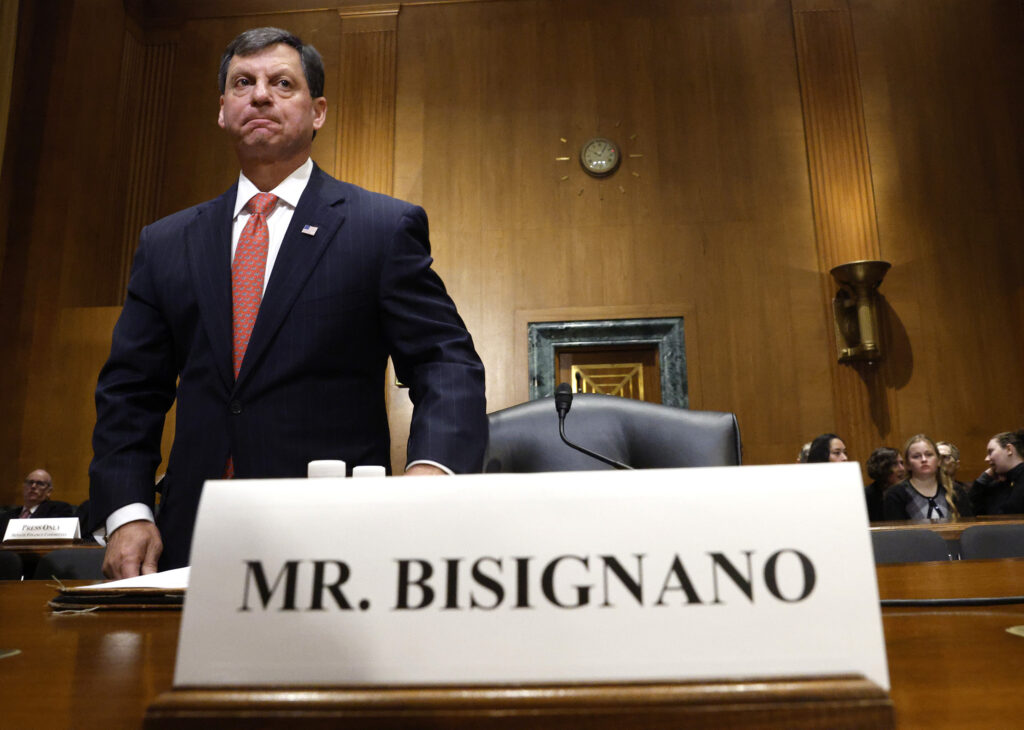As the Social Security Administration begins enforcing a controversial policy to recover overpayments, its newly confirmed leader, Frank Bisignano, is inheriting a system under intense public scrutiny and facing serious operational challenges.
Bisignano said overpayments are one issue he plans to address in his new role as SSA commissioner.
Why It Matters
The SSA’s plan to withhold full monthly checks from beneficiaries to recoup overpayments—reinstating a 100 percent clawback rate—has triggered alarm among senior advocates.
The change, alongside Bisignano’s confirmation as commissioner, places the new chief executive in the crosshairs of a national debate over how to balance fiscal responsibility with the needs of vulnerable Americans.
What to Know
Bisignano, former CEO of Fiserv and longtime executive at major financial institutions, has pledged to overhaul the SSA’s operations using private-sector efficiency.
During his Senate confirmation hearing, he described the agency’s current overpayment rate of 1 percent as “five decimal places too high” and emphasized his intention to reduce improper payments through technology upgrades and artificial intelligence tools.
“At the end of the day, we need to evaluate the ability to pay back and work it out… I’m going to make sure we recover all the money we should recover, but on the other hand, we need to be humans in the process too,” Bisignano said during his confirmation hearing.
The SSA’s 100 percent clawback policy, effective March 27, affects new overpayment cases.
Previously capped at 10 percent during the Biden administration to prevent financial hardship, the reinstated policy could have severe consequences for retirees and disabled individuals who depend heavily on their benefits.
“If an overpayment is being made, that means the Social Security Administration is withholding 100% of their payment… and they are without money to pay for food,” Dan Adcock of the National Committee to Preserve Social Security and Medicare told CBS MoneyWatch CBS News.
Trump has long portrayed Social Security as a system rife with waste and fraud, publicly promoting efforts to streamline its administration. His 2024 campaign included a proposal to eliminate the federal income tax on Social Security benefits, which the Tax Foundation estimated would reduce revenue by $1.4 trillion through 2034, potentially accelerating trust fund insolvency.
Bisignano has also pledged to protect the personal data of Social Security recipients.
“I am going to do whatever is required to protect the information,” Bisignano said when asked if he would restrict Department of Government Efficiency (DOGE) employees from accessing SSA data systems.
Privacy concerns have escalated due to previous breaches attributed to DOGE, an entity backed by Elon Musk and supported by the Trump administration.
What People Are Saying
Michael Ryan, a finance expert and the founder of MichaelRyanMoney.com, told Newsweek: “The former Fiserv CEO knows payment systems inside and out, but Social Security isn’t just another financial pipeline.”
“Bisignano’s talked about ‘operational excellence’ and ‘technological modernization,’ and honestly, the agency desperately needs both. But the real test isn’t whether he can balance the books. It’s whether he’ll recognize that behind every overpayment is a real person facing impossible choices: medicine or rent, food or heat.”
Drew Powers, the founder of Illinois-based Powers Financial Group, told Newsweek: “Considering up to 40 percent of senior citizens report Social Security is their only source of income in retirement, withholding 100 percent of their payments is a step too far. Imagine a 95-year-old who has received just $30 per month too much for the past 30 years. Are we really going to stop payments to that person for the next 9-12 months? That’s ridiculous.”
Alex Beene, a financial literacy instructor for the University of Tennessee at Martin, told Newsweek: “Frank Bisignano has a reputation in the business world as someone who has aggressively cut costs. While overpayments account for a small portion of Social Security’s overall distributions and have been rectified in the past, I could see him taking a more assertive approach in setting up a system to make sure fewer happen to begin with.”
Kevin Thompson, the CEO of 9i Capital and the host of the 9innings podcast, told Newsweek: “As for the impact of Bisignano taking the reins at the SSA, I wouldn’t expect much to change. While there may be some moves toward increased automation and error detection, reducing staffing and cutting positions could actually make the problem worse. Without adequate oversight and support, the risk of processing errors and administrative mistakes could rise, leading to more frequent overpayments and, ultimately, more financial stress for beneficiaries.”
What’s Next
Bisignano has promised not to privatize Social Security or cut benefits, but he stopped short of ruling out future structural reforms.
As it concerns overpayments, Ryan said Bisignano could have the power to make major changes that impact beneficiaries struggling to afford basic necessities.
“The current system is brutal,” Ryan said. “Clawing back up to 100 percent of someone’s check without warning, then wondering why beneficiaries fall into crisis. Bisignano has the chance to implement what advocates have wanted for years: reasonable repayment plans, better waiver processes, and actually fixing the reporting systems that cause these problems in the first place.”
If Bisignano can lower the number of overpayments sent out initially, Beene said the overall system would benefit.
“While overpayments may be celebrated momentarily by the recipient, the reality is discovery of them often results in that money later being clawed back, and reports of overpayments sow distrust in the system from those who are receiving only the amount they’re owed,” Beene said.
Read the full article here
